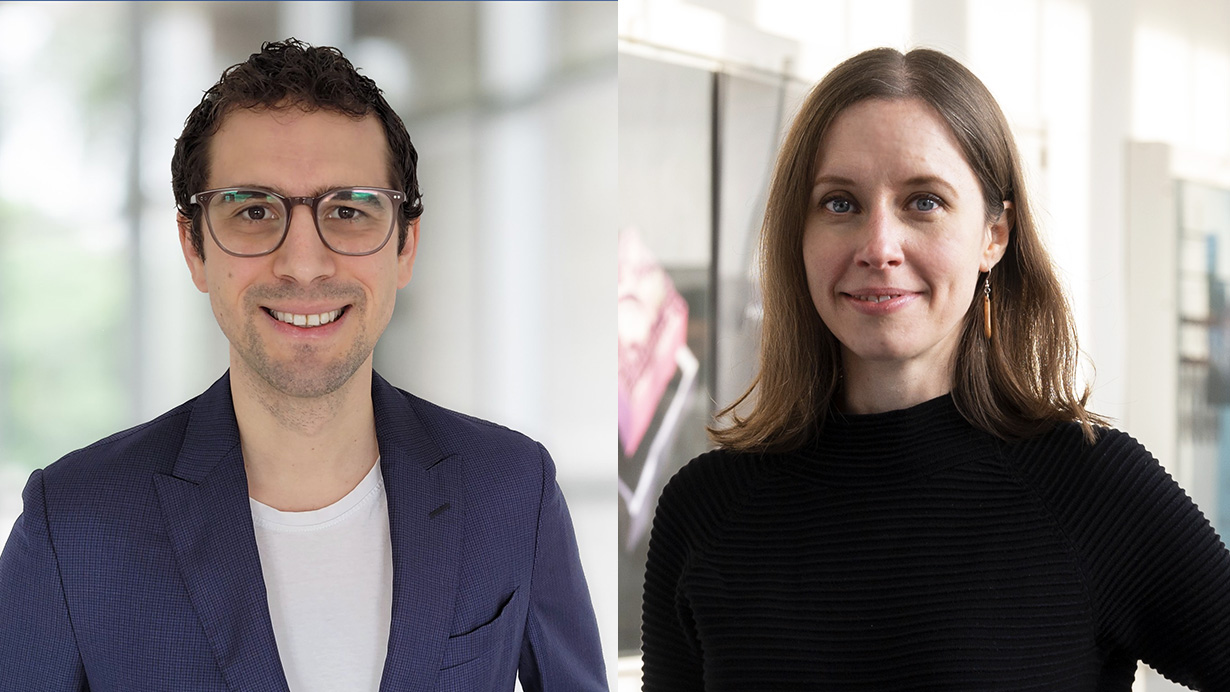Research on barrier-free virtual reality
In the latest call for Starting Grants of the European Research Council (ERC), two young researchers from Karlsruhe Institute of Technology (KIT) were successful with their projects: Kathrin Gerling, Professor of Human-Computer Interaction, aims at making virtual reality accessible for people with physical disabilities with "AccessVR". Tenure-track professor Philip Willke, who conducts research at the boundary between quantum technologies and nanoscience, is working in ATOMQUANT on an architecture for quantum information processing and magnetic sensing at the atomic level.

Contributing to the design of accessible technologies
Virtual reality (VR) holds enormous potential for leisure, education, and work. But currently, most VR systems are designed for non-disabled people. The goal of Kathrin Gerling, professor of human-computer interaction at KIT's Institute of Anthropomatics and Robotics (IAR), is to use her project AccessVR (stands for: Developing Experience-Centric Accessible Immersive Virtual Reality Technology) to remove physical, digital, and experiential barriers to make VR more accessible for people with physical disabilities. To do this, the computer scientist will first investigate appropriate interface requirements for users and the representation of disability in VR by developing customized VR prototypes. She will then develop a customizable VR platform with various workplace and entertainment scenarios. "The AccessVR project will lay the foundation for further inclusion of disabled people in VR, contribute to the design of accessible technologies, and promote technological research that prioritizes accessibility from day one of development," she said.
Gerling is head of the research group "Human-Machine Interaction and Accessibility" and co-director of the "Accessibility" reallab at KIT's IAR. Her team's research focuses on the questions of how interactive technology can be designed to support people's self-determination. In addition, the researchers are investigating how to achieve experiential accessibility that goes beyond the removal of barriers and aims to create enriching user experiences for all.
Quantum research atom by atom
Quantum mechanics is the theory that describes the laws of nature in the nanoworld at the scale of atoms and molecules, opening up new technological possibilities, for example in information processing and sensing. Philip Willke, tenure-track professor at KIT's Institute of Physics (PHI), is working on a new atomic force microscopy (AFM)-based architecture for quantum information processing and magnetic sensing at the atomic scale in his ATOMQUANT project. Spins - the elementary units of magnets - play a central role in this effort, allowing the quantum mechanical properties of individual atoms and molecules to be measured individually. If spins are sufficiently isolated on the nanoscale, they can retain their quantum properties for a long time, that is, remain aligned in a given direction for a long time. In ATOMQUANT, Willke set out to improve these magnetic quantum states on surfaces by several orders of magnitude. "The results have the potential to bring quantum research to the atomic scale and enable the exploration of potential quantum bit systems with outstanding quantum properties in-situ and atom by atom," explains the physicist.
Willke conducts research at KIT's PHI at the interface between quantum technologies and nanoscience. He is convinced that future challenges in science and technology must be addressed at the fundamental scale of matter, namely at the atomic level. With his team, he primarily uses scanning probe microscopy in combination with electron spin resonance to resolve and control quantum systems atom by atom.
ERC Starting Grants 2023
With Starting Grants, the European Research Council (ERC) supports outstanding young scientists who want to start their own independent career and establish their own research group. The selected projects are supported with up to 1.5 million euros each for five years. In the 2023 call round, the ERC awarded Starting Grants for a total of 400 projects in 24 countries with a total volume of 628 million euros. The ERC received 2,696 applications, resulting in an approval rate of 14.8 percent.
